Episode 11: Latin America’s Tech Boom
Latin America is experiencing a tech boom like never before, with AI, fintech, open banking, and data centers leading the charge. In this episode, Anni sits down with Marcos Mauro to discuss what’s fueling this transformation, how businesses and clients are adapting, and why Latin America is more than just an emerging market — it’s a global leader in the making. Tune in to explore the region’s economic shifts and how they compare to churros, and the impact of international investment.
Key Takeaways
✓ Historical Context: Latin America has transformed from primarily being viewed as an outsourcing hub for tech talent to developing its own innovation ecosystem, with fintech startups leading digital transformation that established companies later adopted, creating a path where regulatory frameworks followed market innovation rather than preceding it.
✓ Current Landscape: The region is experiencing a tech surge driven by significant venture capital and foreign direct investment (with Brazil and Mexico securing over $60 billion in 2023). Mobile-first fintech solutions are addressing large underbanked populations, and data science and AI implementation are being deployed across sectors, including agritech, smart cities, and operational optimization.
✓ Anticipated Trends: Latin America is positioning itself as an innovation powerhouse rather than just an emerging market. It is developing homegrown solutions for local needs while building educational infrastructure to support a growing tech talent pool. Continued growth is expected in AI applications, data analytics, and financial inclusion technologies despite challenges of regulatory complexity and currency volatility.
Transcript
Anni Tabagua: Hi, and welcome to the new episode of BizTech Forward. I'm your host, Anni, and today we are heading to Latin America. Latin America is making big moves in AI, fintech, and open banking, attracting major investments in data centers and global partnerships.
But what does this mean for businesses, customers, and innovation? To discuss all that, joining me today is Marcos Mauro, Head of the Latam Region at DataArt. Hi Marcos, so happy to have you here.
Marcos Mauro: Hey Anni, how are you?
Anni Tabagua: Just to briefly introduce our guest, Marcos joined DataArt in 2014 to lead the company's first R&D center in Latin America. Over his 20-plus-year career, Marcos has worn many hats, from developer to project, product, and program manager, leading diverse teams across various projects and industries. His passion for understanding client needs naturally extended into sales, eventually leading him to manage different sales operations.
Today, Marcos oversees data operations across the continent and drives brand development and talent acquisitions. Again, Marcos, I'm so happy to have you with us, and welcome to the show.
Marcos Mauro: Thank you. Thank you. It's lovely to be here.
Anni Tabagua: Okay. Marcos, I want to start with the big picture. Latin America has often been viewed as an emerging tech region. But now I feel like something is really shifting. Is that so? And if yes, what is behind this shift?
Marcos Mauro: Well, you know, there's been a lot happening all around Latin America. But I think the tech surge is the result of a few converging factors. Over the past few years, we've seen a significant influx of local and international investments, which have boosted the startup ecosystem and accelerated the digital transformation across industries.
That made the more mature players follow what the trendsetters are doing in the region. And that also goes along with the whole situation in education. There are many tendencies from governments to support STEM education and tech skills development, in addition to new schools and new ways of learning how to code.
Anni Tabagua: Right. And is there any example you can give to quickly paint the picture?
Marcos Mauro:Sure. There's a bunch, but one concrete example is how digital payment and fintech services are bursting in the region. Initially, fully digital startups drove that innovation in a landscape of absolute regulatory uncertainty. So basically, there was no regulation around it, and the startups just went trying to come up with something that the general public would adopt.
After that, consumers really caught on, and a lot of people out there in the markets started using these new tools, these new platforms, for their digital finance. That created great opportunities for big companies. Companies big enough to do lobbying eventually pushed the market even further.
So basically, the banks stood on the shoulders of the startups, on what the startups had built. In that way, they pushed regulation. Now, things are catching up, and there's a lot of investment in Argentina, Chile, Colombia, Brazil, and Mexico.
The thing is that with all this innovation and investment, the companies driving that innovation are also becoming the best employers in their market. It's super cool to work for these startups. It's super cool to work for, for example, a new bank's IT factory, which has been nicely set up and whatnot because there's a lot of investment and there's a lot of opportunity in the market.
So basically, what that creates is another trend that definitely affects the talent market, right? So, in the talent market, there are a lot of people who want to become part of that. They want to study. They want to become professionals in IT. They want to be part of that because it brings them into this great reality of being an IT worker and working for these great companies and being like that.
So, yeah, there are many cases that one could mention. But I think that fintech, in particular, and how it came to represent a lot of what's happening in the region because it's also happening in insurtech and retail in the same fashion.
Right. So, good old retailers are trying to mimic what the newest digital companies and the newer startups are doing. It's a similar kind of competition that is creating a great shift in the market.
Anni Tabagua: Oh, that's so interesting, Marcos. Actually, yeah, I'm so glad you mentioned fintech right away because I recently read a big article about how fintech is really taking off in Latam, and they specifically emphasized Mexico. So, is that correct? Is that the leader?
Marcos Mauro: Absolutely. Fintech in Mexico is like the perfect storm happening, but in a good way. So, across Latin America, fintechs are booming for a variety of reasons. Mexico, in particular, stands out. A key driver for this is a very large, previously underbanked population.
So, you have to understand that many people in Latin America don't have any banking services; they don't use any. And you would say, how does that work? Well, they use cash. They get their money in cash. They have informal work, and they just get a certain amount of money, and then spend it.
But it's basically cash and paper notes; that's just the way it goes. But for a big chunk of Latin America, believe it or not, that's more than 40%. So, all of those people who were basically excluded from the finance sector created a strong opportunity, but at the same time, there's a very high penetration of mobile devices.
So, people probably don't have banks, but they have a mobile device, right? So, it's a perfect platform to serve really capable financial services. So that is the opportunity that startups took. And in Mexico, in particular, it's a perfect representation of that. It's the biggest Spanish-speaking market. So, it makes a lot of sense that it's booming beyond what's happening in the rest of Latin America because the opportunity and investments are bigger.
Again, these two things created the perfect setup for fintechs to emerge. But it goes even beyond just banking services. Think about it, right? Let's say a guy is walking across the street trying to sell you churros, right? He's walking with a basket of churros. Normally, that person would say, "Do you want some churros?" And then he would get paid in cash and give you churros. But now, for example, financial companies and startups are providing a payment instrument that a person can use to receive a digital payment.
Not only that, he can also pay digitally for other goods that he uses to make the churros. There are myriad financial services and micro-financial services if you think about them, but they all have great clarity and numbers. So, there's an untapped market of people that formerly didn't have banks. Now, all of a sudden, they can go ahead and sell their churros using digital payments, which seems absolutely normal in other parts of the world.
But in Latin America, it was probably the cornerstone of why these things worked. Because it's also cumbersome to walk around with money. You have to understand that in these countries, the general public, when they are using money, they are also subject to it's not the dollar or the euro, right? So, it's a peso, probably some local peso, which depreciates all the time. It's subject to inflation. Your notes are no longer good for anything. You have to carry a ton of them to pay for stuff. So, it's incredibly cumbersome and difficult. So now, all of a sudden, these people that were completely excluded from going all tied up to one of the bank branches and asking for credit, they can get it in the palm of their hands thanks to this innovation, which, again, is very common in other geographies. But in Latin America, it's happening right now. And now everybody's jumping onto that wave.
Anni Tabagua: Marcos, it's so interesting. And I personally appreciate the churros example. That's one. Also, I wanted to tell you I cannot mention it because I traveled to Argentina last year, and sometimes the cash wouldn't fit into my purse, and I felt so rich. Marcos, like, I will never feel that again. But I had pictures. I felt on top of the world.
Marcos Mauro: Absolutely. Absolutely. You're spot on with that. It's not merely about swapping out legacy systems for newer ones. It's a completely new game. Companies are now leveraging this technology to rethink their operations, engage customers more deeply, and create entirely new value propositions. The customer flows they're tending to are completely new and different, and they're getting users started, which just takes way less from them than before.
Like the example I just gave you about this person going to a bank and trying to say, "I want my first bank account," and it being difficult and cumbersome, and all of a sudden, now tending to these user flows that are just completely different, but then give you a complete array of services that before were just impossible to push to those consumers.
Right? So, it's a completely new game. For example, it goes into microcredit. Let's go back to the churro example. If the person is selling out all of his churros every day, he probably needs a machine to make some churros faster.
Right? So, he needs some credit. But that credit is not a big one, right? Because it's just one of these machines that can do things a little faster than by hand. And that is a new product that can be served just thanks to this innovation. So, it's not just simply trying to convert the old customer base into something more modern, but expanding business.
That also takes me back to the reasons why investments are so often found across the region. There's so much opportunity to build all these user flows and products that have great adoption, really very few barriers, entry barriers, I mean, and they work great for people because they just make sense.
Anni Tabagua: I wanted to talk about markets as a smooth transition to something else because, in today's world, there is no way to have any discussion without mentioning AI and data. So, I need to ask, where do AI and data stand these days in Latam? How is it going?
Marcos Mauro: It's definitely a hot topic. AI and data have been transformative forces across a variety of sectors for almost two decades now, including fintech, agriculture, healthcare, and retail. I can see this ecosystem only growing, with schools, startups, and government initiatives all focused on harnessing these technologies and using them for something.
Right? There's a big appetite for using data in practice. At the same time, we can see increasing investment in data analytics and AI from the public and private sectors to improve customer experiences and optimize operations.
So, you know, they think this technology can help me cut down costs, optimize my retail channels, optimize my sales. Even in manufacturing, there are ways of optimizing, cutting losses, and whatnot. So, there's a big push. You know, I think that for quite a few years at DataArt, we've been big enough to use it as a monitor of certain trends, you know?
I've been around for a few years already at DataArt, but you know, I kind of use it to see what's going on. And I can tell you, for example, that for the past year, the majority of senior people that we've hired across Latin America were for these kinds of projects. I'm talking about people with a background in data science, data engineers, people who work with data and build large language models, and AI in general.
Right? So, I can tell you it's confirmed that it's a trend. It's not only a hot topic to talk about, but there are so many companies investing and doing more and starting to use, for example, our services, but their own as well. There's a lot of demand in this area across the region.
Anni Tabagua: So, Latin America is definitely not just a consumer of AI. It's actually becoming a leader in developing and applying it.
Marcos Mauro: Yeah, and in Latin America, we're not only adopting AI solutions but also innovating on them. So, we're not just following that trend; we're also setting certain trends, and this goes across different areas, types of projects, and industries.
We can see a lot of collaboration between startups, schools, and government initiatives to attract the talent needed to support these innovations. And in the agricultural space, which is uniquely developed in Latin America, we're seeing it a lot.
So, when you see IT technology being used to serve local demand, the local need, you know that region, in particular, is creating something, not only following, but even creating something. There are a lot of digital imagery applications in the agricultural sector. There's a lot going on.
This is to serve local needs, right? So, it's not only to have developers working on some project in the States, but it's also for our local needs in the region.
Anni Tabagua: Oh, that's so cool that you mentioned an example that affects real people. So, how do AI and data actually serve good?
Marcos Mauro: Right, right.
Anni Tabagua: Yeah.
Marcos Mauro: There are many examples. If you think about it, we not only participate in projects, but you see, because people have been around IT for a long time, I know a lot of people who are participating in different kinds of projects. And I can tell you, probably right now across Latin America, there are a dozen major cities running projects powered by AI.
Again, image recognition technology is being used for traffic management and reducing carbon footprint. It is also being used to improve the citizen experience for people commuting within cities. There's a lot of that going on in the private sector. I continue to see companies pushing operational improvements, as I said before, using AI engineering squads to literally play around with models and figure out how they can help.
So basically, trust so much in the technology that they build a team that will be playing around with modeling hypotheses, trying to come up with something that works, and creating dozens out of hundreds of hypotheses that save them millions and even hundreds of millions of dollars.
This is real data for companies that I know of, and it's so interesting. And this is happening across Latin America, right? So, it's not only kind of "Let's play around with a POC." It's a habit; it's game on. So, there's a lot of real stuff happening there.
Anni Tabagua: Right. Marcos, you mentioned this before in the beginning and throughout our chat, and I want to make sure I'm getting it right. Investment, international investment. So, it seems like Latin America is attracting a lot of investment these days. Is that a recent development and more than before? And how come?
Marcos Mauro: Absolutely. There's a lot of investment. Again, compared to other regions, we usually see an inflow of investment, specifically in startups. There's a big market opportunity because the IT convergence happens a little later than in other regions.
So, that lateness is bringing a big opportunity for startups and investment funds to come and invest. It's been happening for a while and has to do with the social lining of how things work in Latin America. We see increasingly supportive regulatory frameworks in digital economies, a lot of market potential, and a little bit of a drawback in investment over the past year, in 2023.
But it's picking up. In general, foreign investment has been strong across the top markets in Latin America, specifically Brazil and Mexico, which secured more than $60 billion in investment over 2023 – $30 billion for Brazil and $30 billion for Mexico. So, it illustrates a trend and a possibility to capture it and do something about it.
Anni Tabagua: That sounds really positive, strong, and optimistic. I love hearing that, but I just have to know out of curiosity. There also must be some challenges, right? Hurdles. So, businesses operating in the tech sector there, would you comment on the hurdles?
Marcos Mauro: No, absolutely. There's a ton of opportunity, but what opportunity comes without its challenges? The major one is the regulatory and bureaucratic complexity of some countries in the region. It's different across countries, so it's complex for any company to invest in the same way all across Latin America.
That creates a certain landscape so that local companies, especially those from Latin America, trying to move their AI-powered solutions to other countries could face challenges due to regulatory differences. Even worse, if you have created an AI-powered solution following GDPR and try to go into one of the Latin American countries, it's not quite the same.
For data specifically, and for AI projects that rely so heavily on data, the realm of data protection and privacy compliance is especially tricky. Additionally, there's certain volatility of currencies, which makes it intricate. Lastly, there's a growing pool of tech talent across the region. Still, the big opportunity means that global players are trying to tap into Latin American talent, creating another challenge for local and foreign companies getting talent across the region.
Anni Tabagua: Marcos, is there enough talent, or is there a shortage?
Marcos Mauro: The right question. The hard one. Well, a growing pool of tech talent is emerging across Latin America. Many universities and coding boot camps produce skilled graduates. Now more than ever. There's a shortage because there's a lot of demand happening.
So, many companies are working with outside companies like ours to augment while they build young talent. The key is building young talent, not being selfish about that aspect, and thinking that when you're building young talent, you're helping people grow. You're doing something good for humanity.
You're putting people out there who can do something greater, and eventually, they will benefit if people walk away after you train them. So, I think that it's a great setup that makes us all think about how to resolve it now.
Anni Tabagua: Yeah, that's a great point. Marcos, we are now at my favorite part of the podcast: predicting the future a little bit. And I want to ask you: Looking ahead, what do you think is next for the Latin American Tech Center, or what should the world be paying attention to?
Marcos Mauro: Well, Latin America is really proving to be not just a follower but a leader in innovation. We serve many needs locally with AI, innovation, building software, developing data centers, and infrastructure that can support those solutions. But it's for us, you know, so it's basically not necessarily just for the rest of the world.
So, we have to stop thinking of just an emerging market. It's really a powerful powerhouse in the making. And we should see ourselves as that.
Anni Tabagua: Yeah. That's great. And maybe just to follow up on that question, do you personally have any unpopular opinions on the topic or politics?
Marcos Mauro: Yeah. Sometimes, I find myself not arguing but discussing with colleagues and people from the industry. Probably one huge misconception is that America is just a place for outsourcing tech talent, getting developers by the kilo. Outsourcing is part of the story and definitely took us to this place.
But we're no longer only serving people for projects in other regions. It's part of the story, and we do it. But the real narrative is about homegrown innovation. The world needs to wake up to the fact that some of the most exciting developments in AI, fintech, and digital transformation are happening in Latin America.
Anni Tabagua: Oh, that's such a strong point and a great way to wrap up today's discussion. Marcos, thank you so much for sharing all your insight. It was a pleasure to talk to you.
Marcos Mauro: Thank you so much. It was my pleasure, and I wish you all the very best.
Anni Tabagua: Thank you. Thank you to our listeners of BizTech Forward. If you enjoyed this episode, please like, share, and subscribe. Remember, we always want to hear from you. If you have any thoughts, insights, or questions of your own, reach out to us at biztechforward@datart.com. See you next time.
About the Guest
Marcos joined DataArt in 2014 to lead the company’s first R&D center in Latin America.
Over his 20+ year career, Marcos has worn many hats — from developer to project, product, and program manager — leading diverse teams across various projects and industries. His passion for understanding client needs naturally extended into sales, eventually leading him to manage different sales operations.
Today, Marcos is overseeing DataArt operations across the continent, as well as driving brand development and talent acquisition.
Check Out All of Our Episodes

From ancient artifacts to AI-curated collections—art is evolving, and fast. In this episode, host Anni chats with Doron Fagelson, SVP of Media & Entertainment at DataArt, to explore how technology is transforming the art world, from online marketplaces to data-driven personalization and virtual galleries.

In this episode, host Anni chats with Julia Zavileyskaya, Chief People Officer at DataArt, about the biggest hiring trends, AI’s role in recruitment, and what really keeps employees engaged." Please find the episode's cover attached.
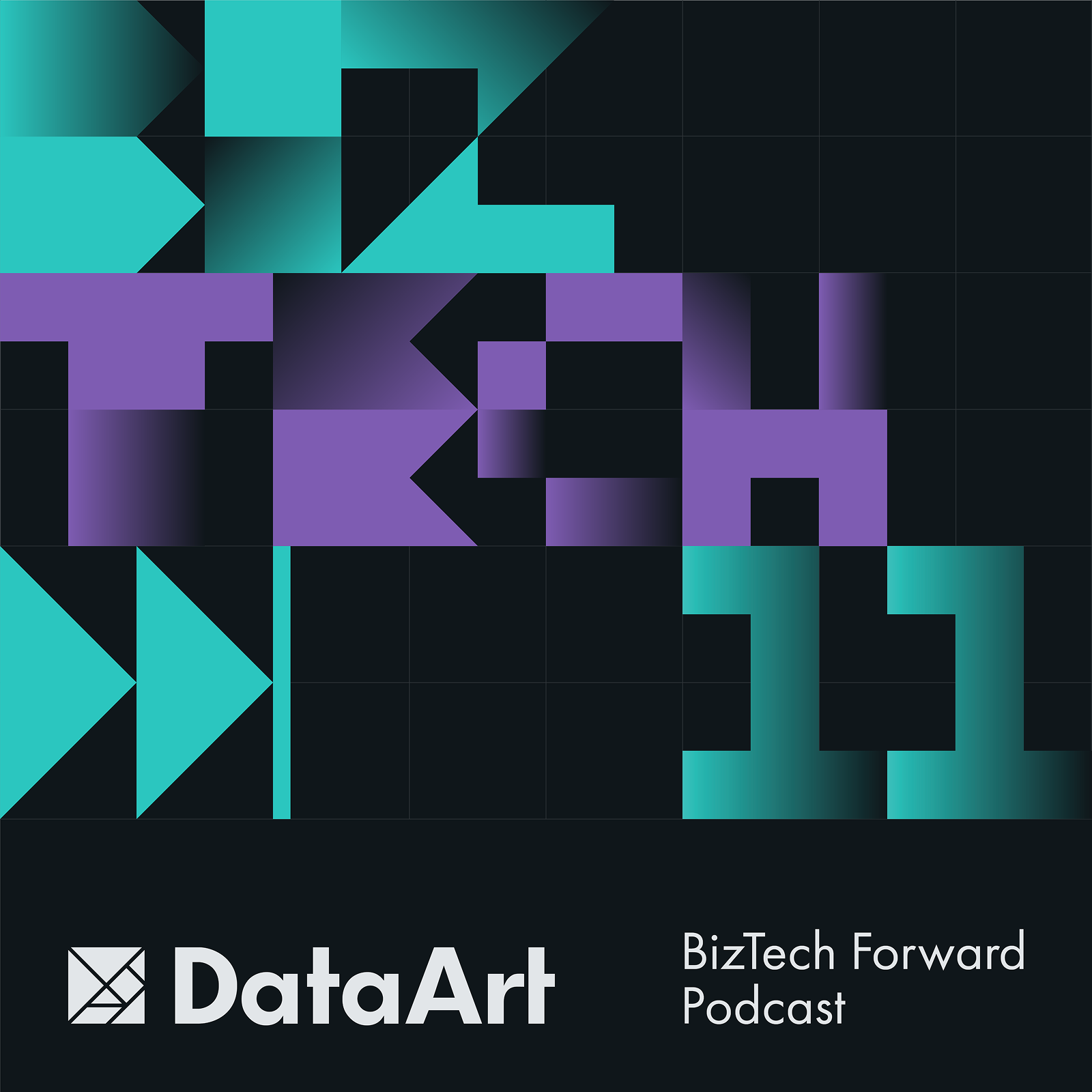
In this episode, Anni sits down with Marcos Mauro to discuss what’s fueling Latin America’s tech boom, how businesses and clients are adapting, and why it’s more than just an emerging market — it’s a global leader in the making.
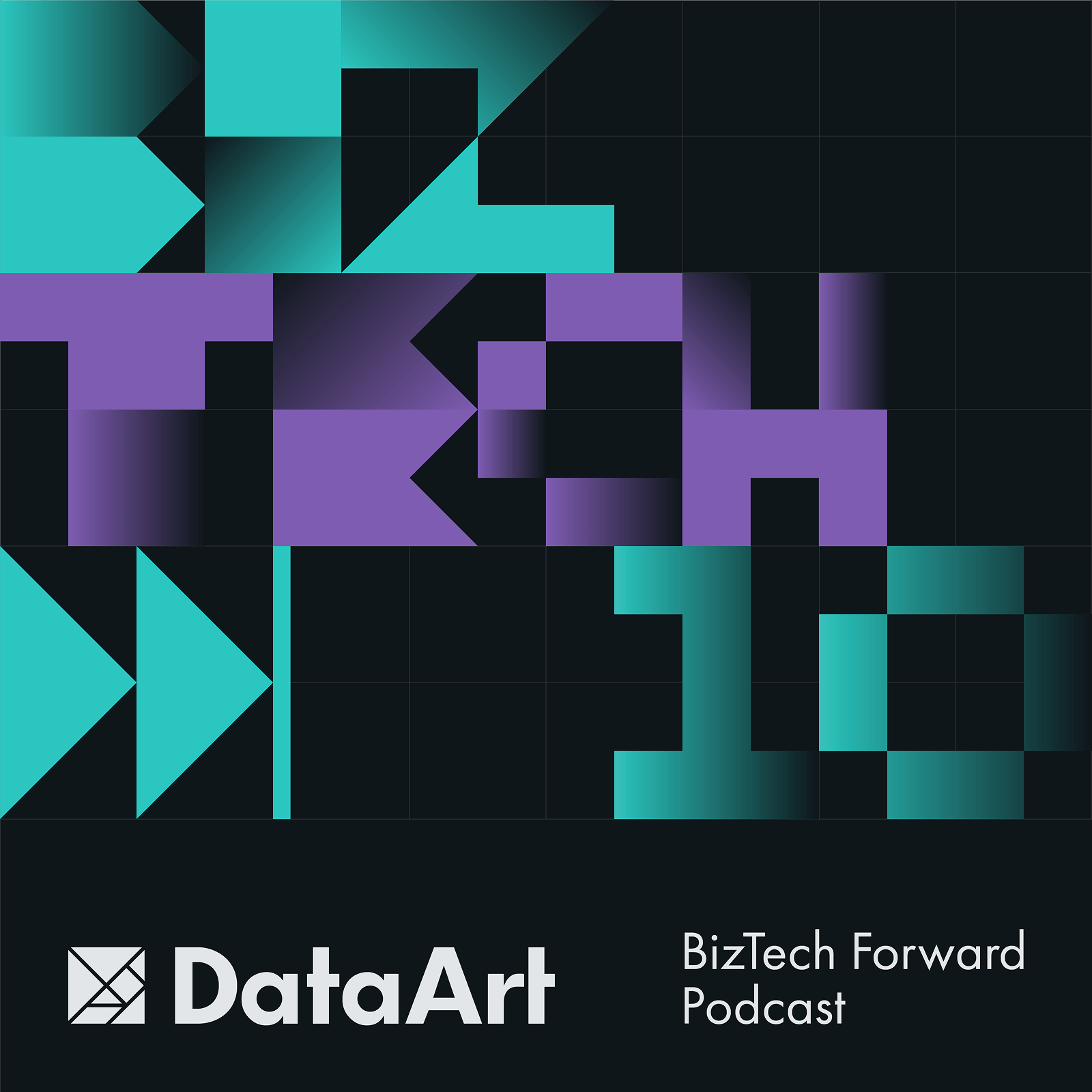
In this episode of BizTech Forward, Anni chats with Maryna Melink, Head of Learning and Development at DataArt, about how companies can create a culture of continuous learning, scale it across thousands of people, and deliver real business value.
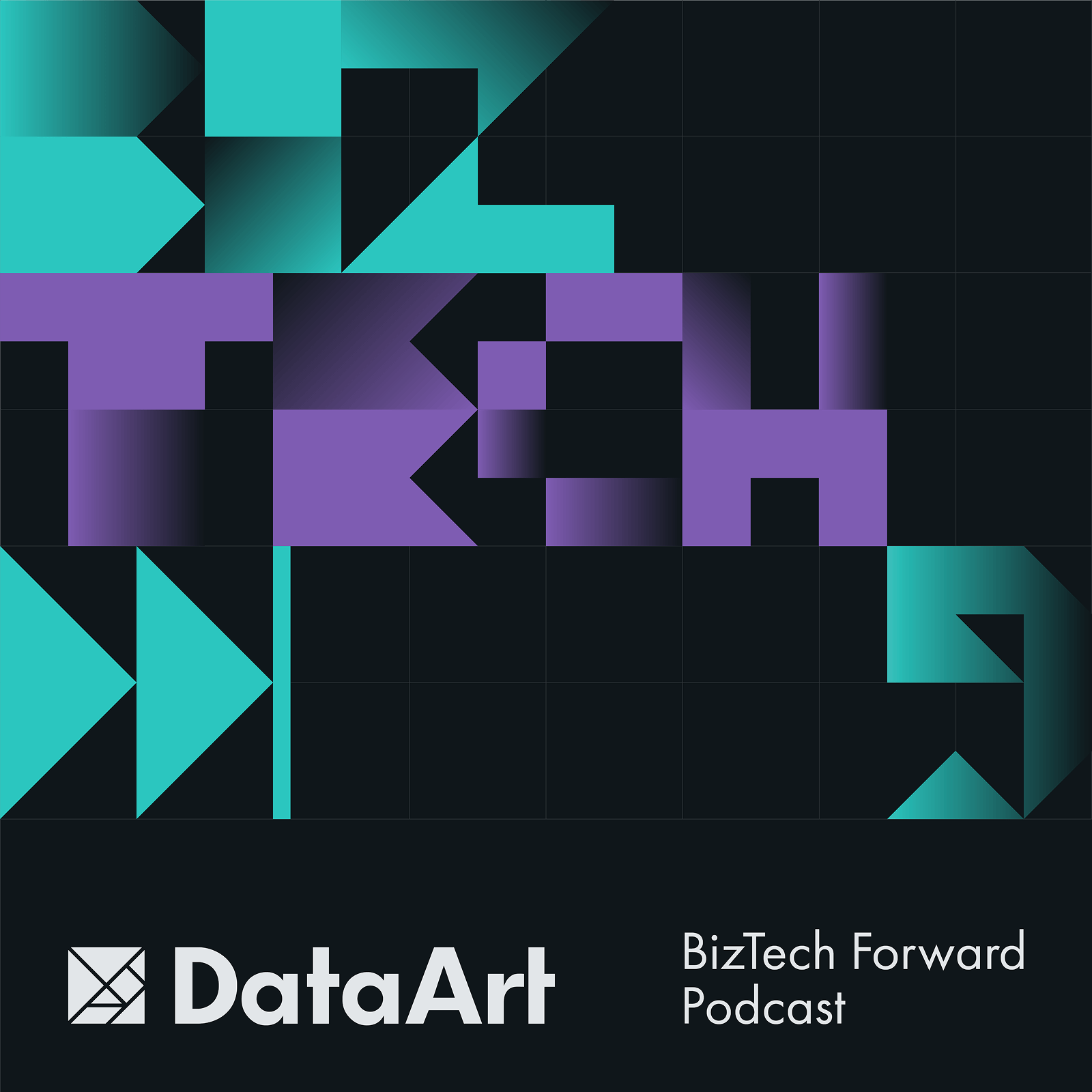
In this episode of BizTech Forward, Anni sits down with Mike Peterson, Advisory CTO / CIO, Mentor, and Coach, who discusses how client expectations from IT vendors have evolved over the past decade, what clients miss from the ‘old days,’ and how vendors can stay ahead in an ever-changing tech landscape.

This is a bonus episode of BizTech Forward: Season One Recap. Host Anni takes you through the eight episodes of the debut season, highlighting some of the best moments and setting the stage for season two!
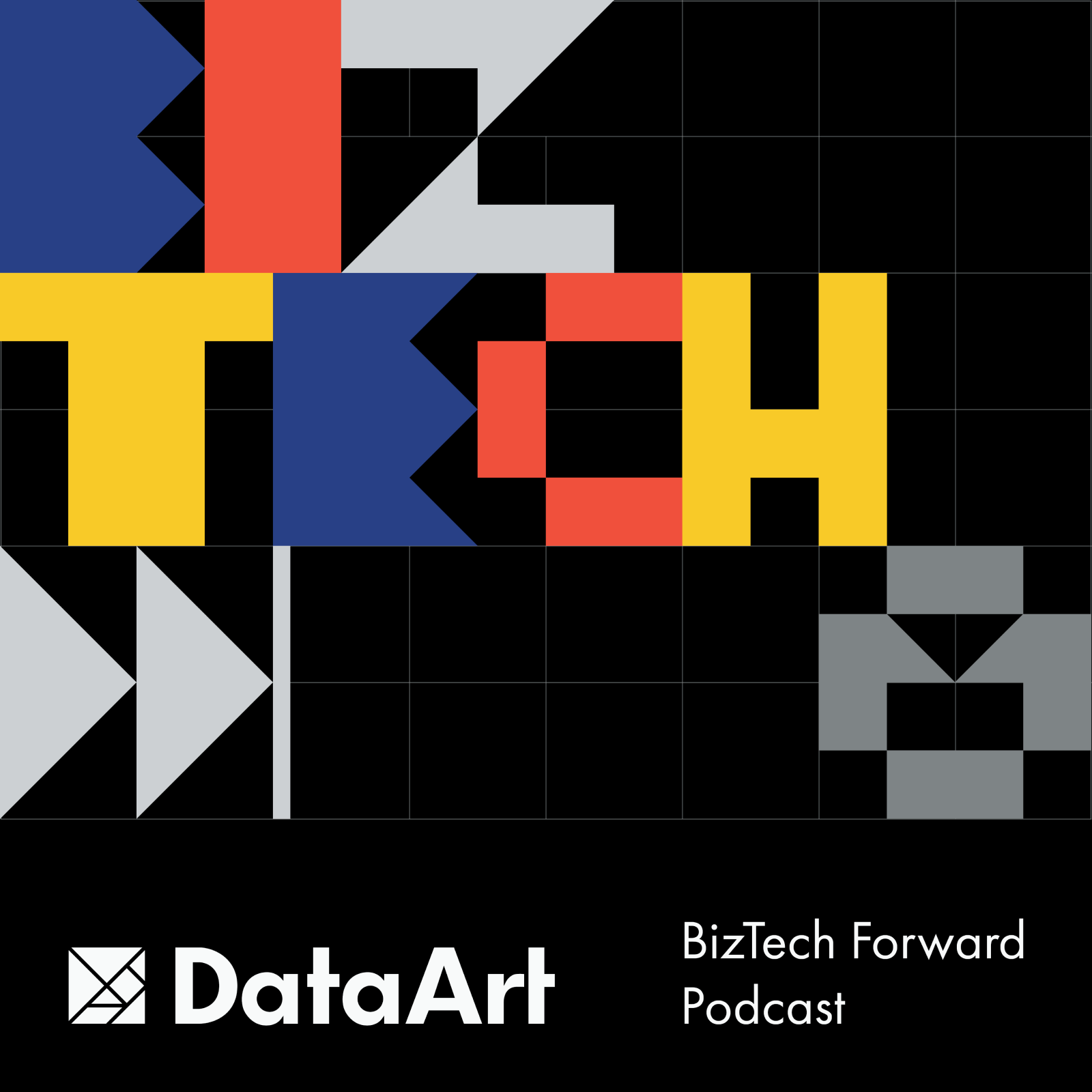
In this episode of BizTech Forward, Anni chats with Scott Rayburn, VP Marketing at DataArt, about how marketing has evolved with the rise of data and technology.
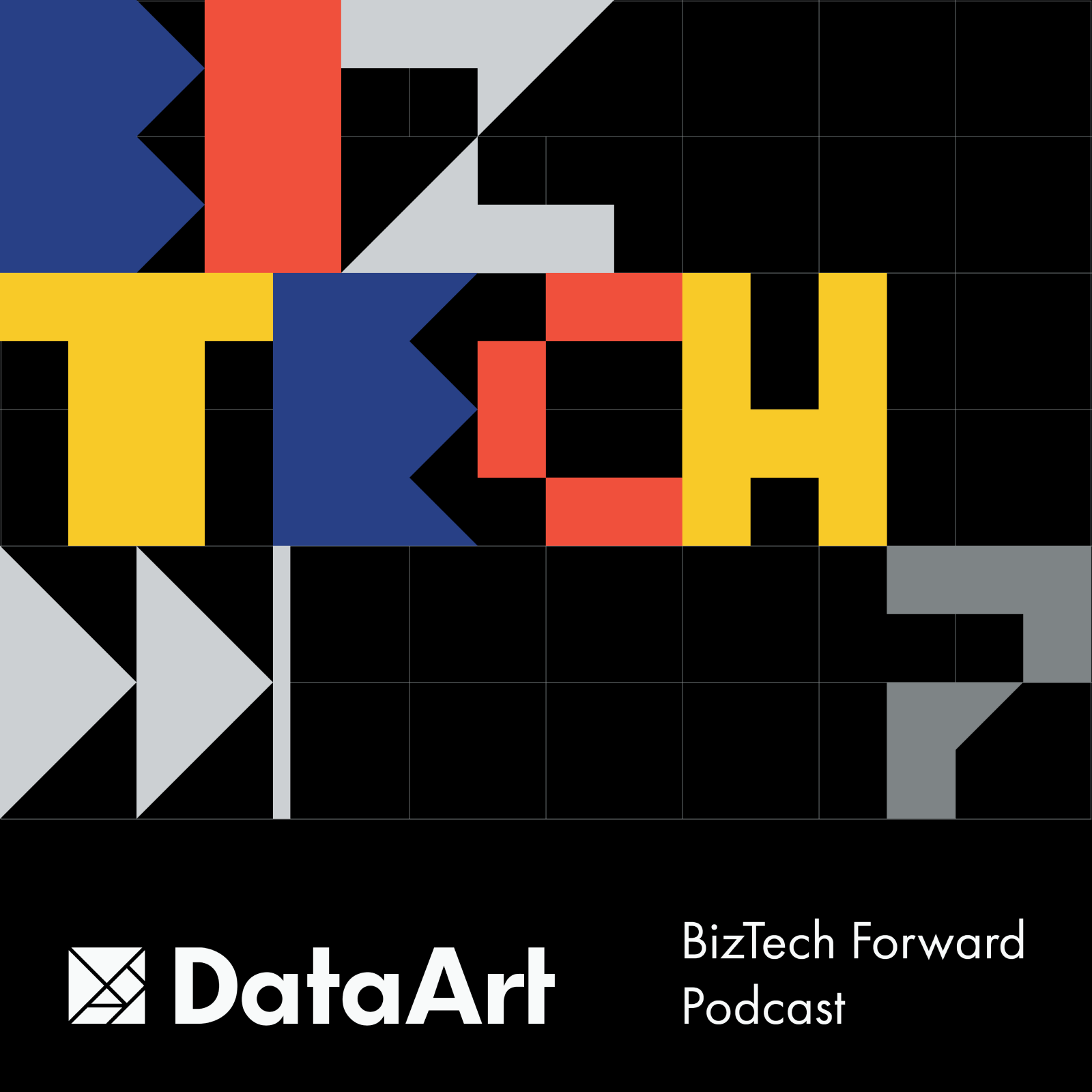
In this episode, Anni chats with Sheetal Kale, Head of DataArt India, about the country’s modern tech views, AI and data, IPO boom, and India’s gravitational pull in global decision-making.
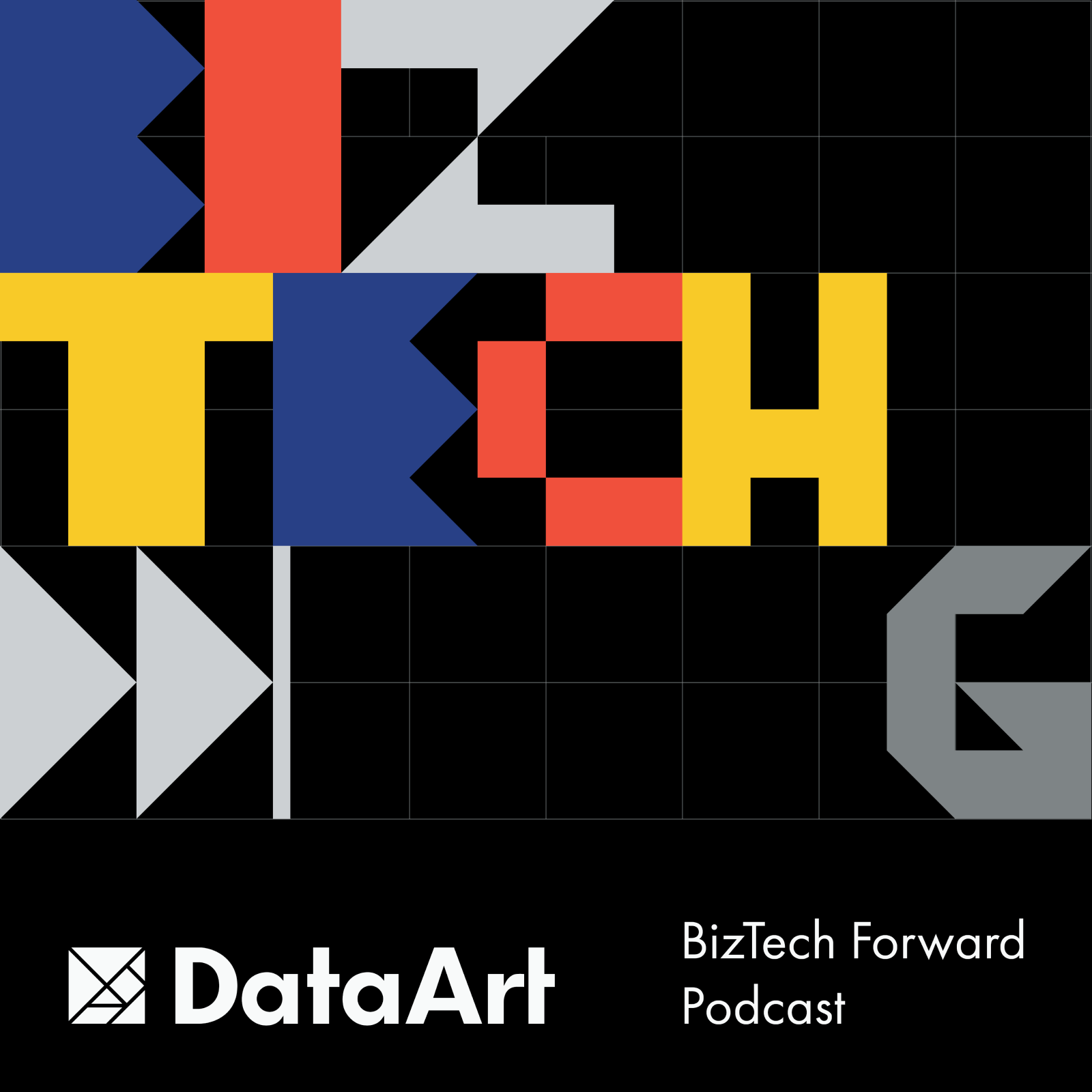
In this episode of BizTech Forward, Anni sits down with Tim McMullen, DataArt's Head of Design Studio, to talk about the evolution of design processes in the world of UX.
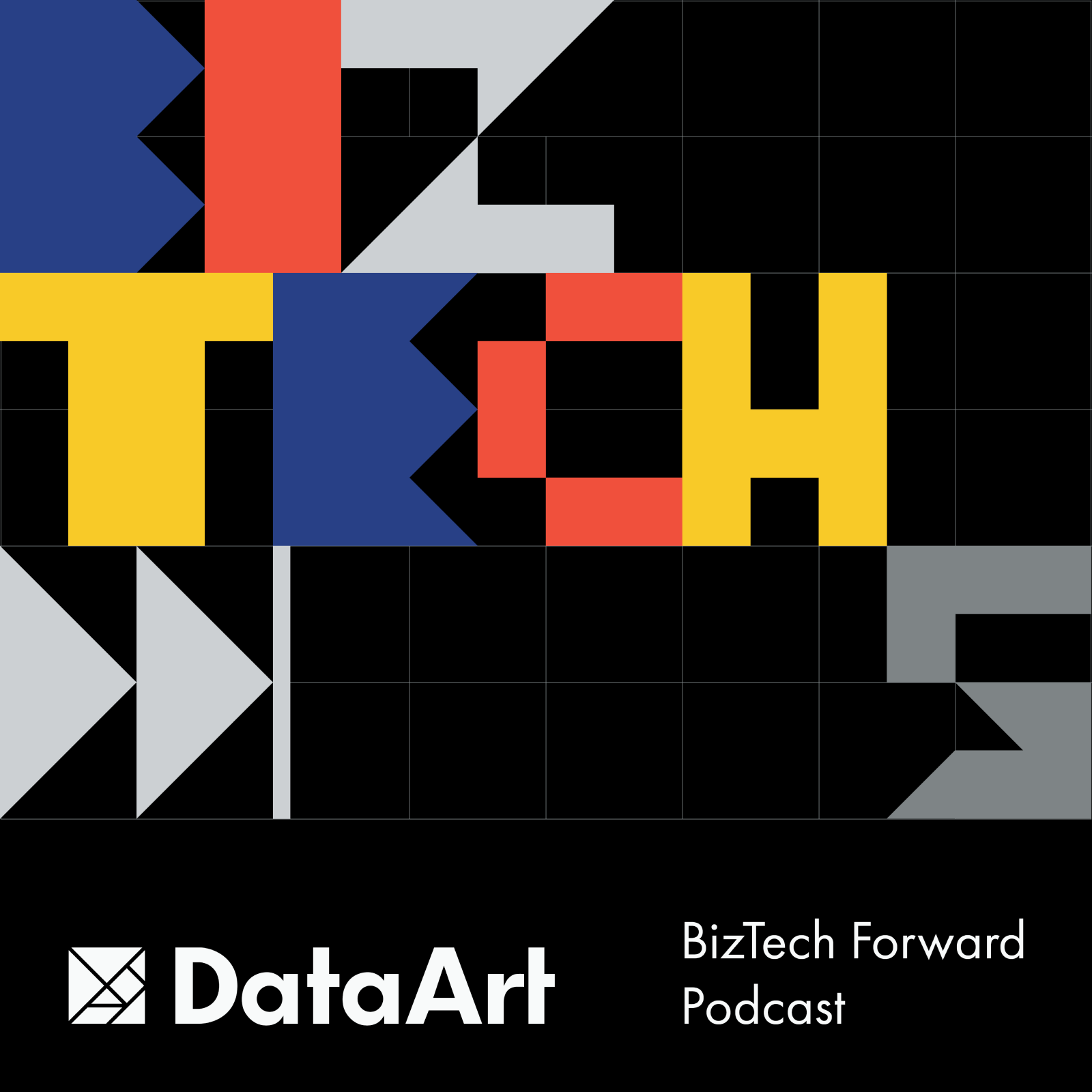
In this episode of BizTech Forward, Anni sits down with Tim McMullen, DataArt's Head of Design Studio, to talk about the evolution of design processes in the world of UX.
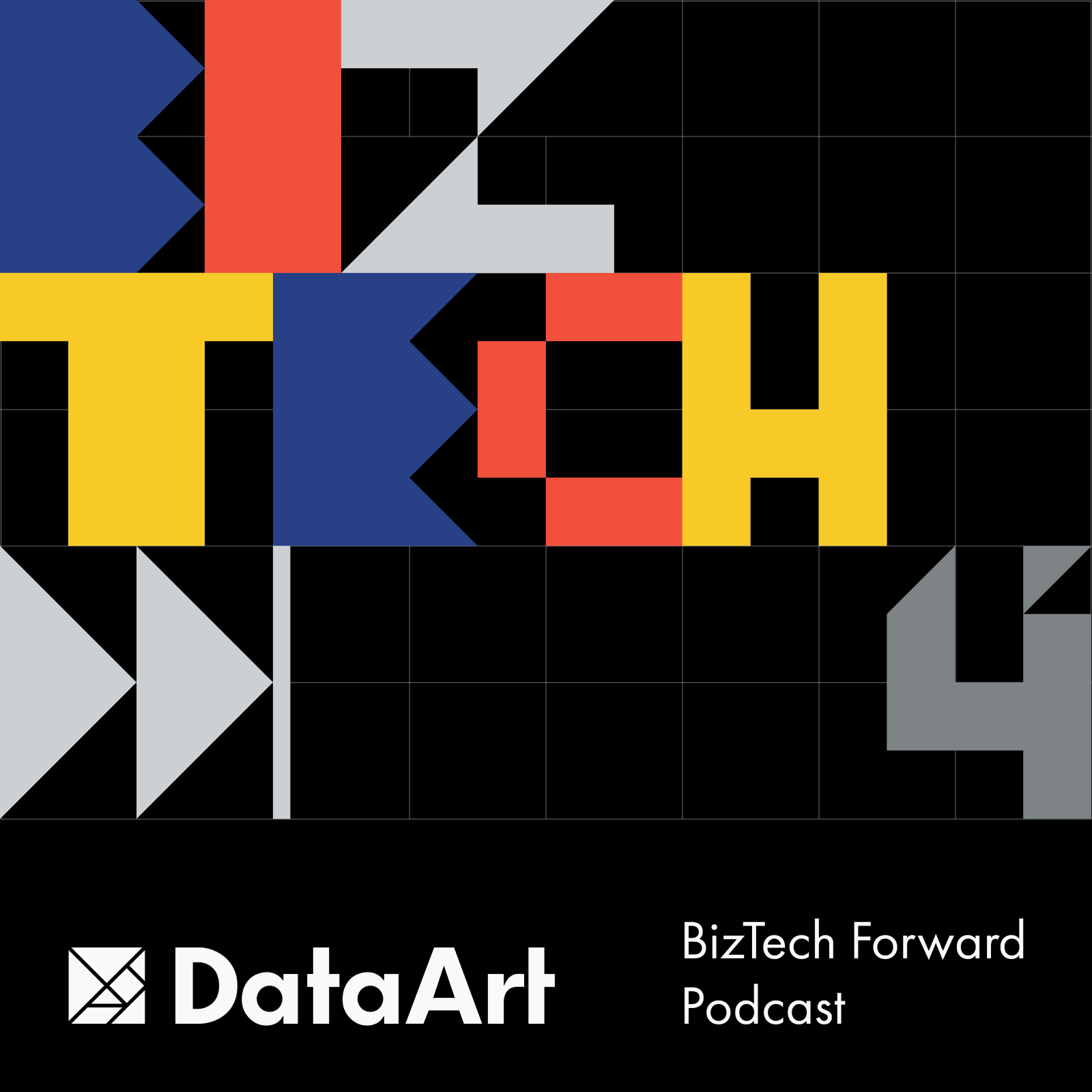
In this episode of BizTech Forward, we chat with Yuri Gubin, Chief Innovation Officer at DataArt, about why data quality is critical for AI success.

In this episode, we chat with Anna Velykoivanenko, Global Employer Branding Director at DataArt, about the perfect blend of technical know-how and human-centric skills.
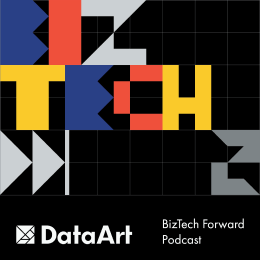
In this episode of BizTech Forward, Anni from DataArt’s Media Relations team chats with Alexei Miller, Managing Director at DataArt, about how businesses can truly measure the value of their IT investments.
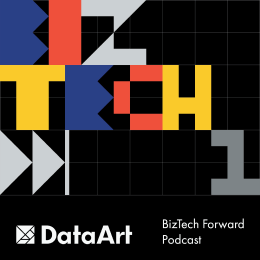
Join Anni Tabagua as we kick off our very first episode with a fascinating topic: AI in Automotive. Our guest is Dmitry Bagrov, the Managing Director of DataArt UK!
We Want to Hear From You!
Reach out to us with any comments, feedback, and questions by filling out the form.

Thank you for contacting us!
We will be in touch shortly to continue the conversation.








